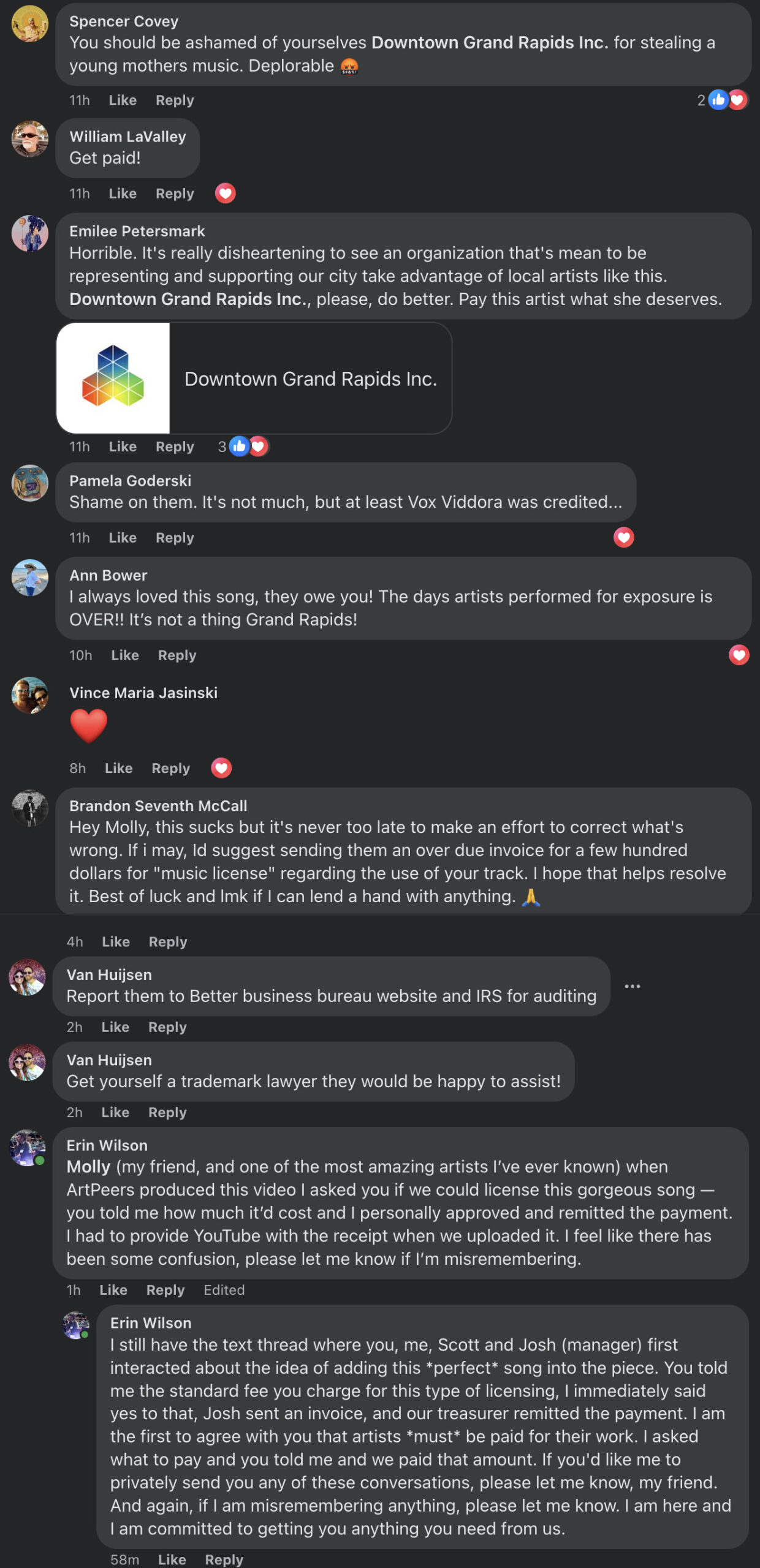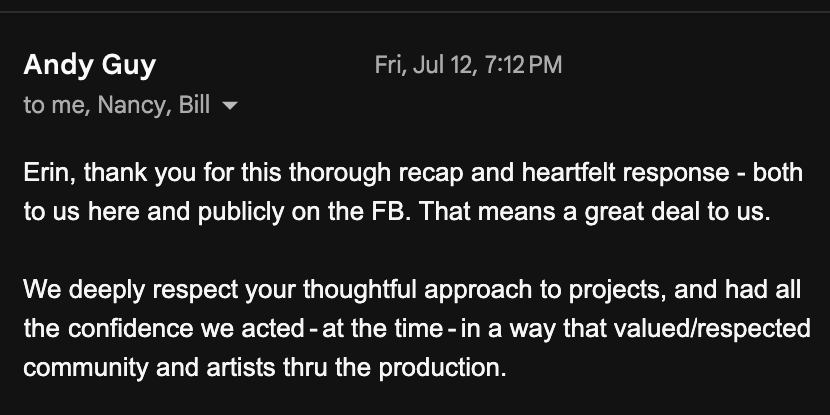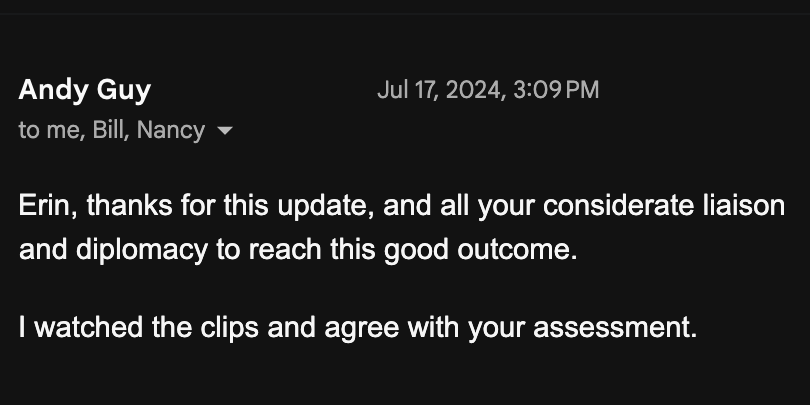Diplomacy Matters
When a project participant makes public accusations, proactive leadership is key.
Summary
July 11, 2024 – a popular, local artist makes public allegations on social media, regarding a community video project from 2016. The artist claims her music was used without permission or compensation.
The nonprofit leader who created the video has to resolve an increasingly heated situation that now has the attention of a growing number of City leaders, with angry people on social media who begin making threatening phone calls.
Background
In 2016, the City of Grand Rapids commissions a local NPO (ArtPeers) to create an identity video for its Downtown. Prior efforts by other groups were criticized for lack of representation.
ArtPeers Director Erin Wilson proposes a video depicting Downtown if inclusion continued to be a high priority. ArtPeers leverages trust-based relationships and invites diverse communities into the process from the start, promising them final approval. The video debuts before 2,000 people at Ah-Nab-Awen Park on July 11, 2016. It gets a million views that month.
Here’s the 2016 video:
Fast forward to July 2024
On the eight-year anniversary of the video’s debut, ArtPeers E.D. Erin Wilson is alerted to a post by a community icon he has known for a decade and collaborated with multiple times. The post is unexpected. Wilson, himself, had secured the permission to use the music.
The following allegations appeared in a public Facebook post on July 11th, 2024.

Responding quickly, clearly
Wilson re-reads the original post by Molly, and the comments, taking a deep breath and replying. (See final two comments below):

No reply (it gets worse)
With no reply from the musician (Molly) that night, Wilson checks Facebook the following morning – only to discover that Molly has deactivated her popular FB page.
Still, many people saw the post: anonymous, angry calls and threatening messages are coming in to City offices, with people demanding restitution for the musicians.
Open channel with musicians
Wilson again reaches out to the musicians. They begin talking. He says Molly’s post describes the opposite of his original conversations with the full band and their manager: conversations from 2016 that still exist in the private Messenger group created to propose the use of their music.
Text bubbles from these conversations include Wilson asking if they’d suggest a song and a price to license it (they do; he agrees to both). Later messages reveal a shared exuberance about how well the project turns out.
Wilson asks if there’s anything missing from his understanding of the original discussions. And he asks: if they agree he acted in good faith, will they post a public clarification?
They conclude their dialog for the moment. Wilson updates City leaders.
Email reply from City leaders
City of Grand Rapids leaders email Wilson to confirm they’ve seen his replies on Facebook, and read the private summaries he has provided along the way.

And then it gets better
Process is everything: within 24 hours, Molly goes to Instagram and clarifies the record.
Here’s her explanation, in her own words:
Clear communication (City)
Wilson alerts City leaders with whom he’d been communicating about Molly’s Instagram Story. They watch her video and reply to Wilson:

Allegations can occur without warning, creating confusion and frustration. Yet, they must be taken seriously, with intentionality around a desired outcome. If we operate in good faith (and keep the receipts) there’s a chance for genuine reconciliation – when you interact in a dignified way and give people space to respond in kind.
This series of events provided an opportunity for greater understanding. Molly reminded Wilson of general, ongoing difficulties with how artists are compensated and regarded in society. Especially black femme artists, whom it could be argued have experienced some of the worst historical mistreatment of any group.
Deliberate, respectful interactions provided a window into complex grievances, while preserving the opportunity to recognize an error that required immediate attention. The resulting public acknowledgement helped to clear the record.
Despite any personal feelings upon first seeing the allegations, Wilson immediately navigated a path toward reconciliation. This goes beyond simply resolving a situation, or “effective public relations.” The desired outcome defines your process, and vice versa. Navigating situations with grace and clear purpose can produce outcomes that are powerful, and profound.